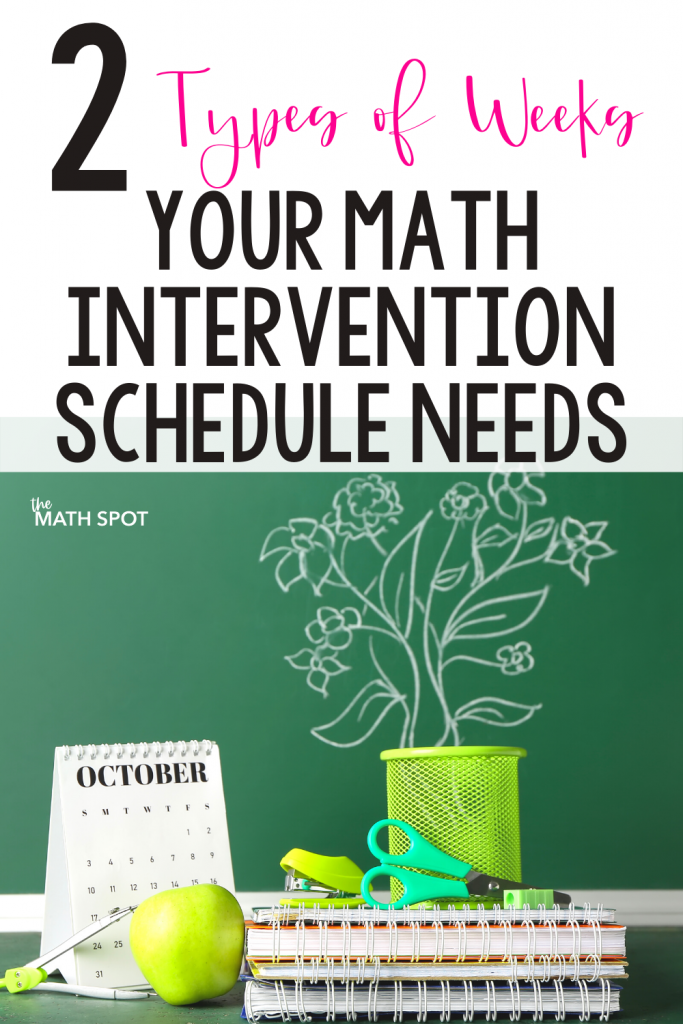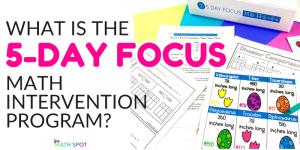When you are planning your math intervention schedule you have one main goal: Support your students in filling gaps in understanding after initial instruction.

While focused on this singular goal, it’s not as easy as identifying a gap and “filling it up”– even in math intervention our students will have a variety of needs and will master this instruction at different rates.
I have a solution to this problem! Working these two types of weeks into your schedule will allow you to stay focused on specific skill goals while also being responsive to the variety of students in front of you.
Instructional Math Intervention Weeks
Instructional weeks are exactly what they sound like- time to deliver new instruction to your students. These weeks are based on your students’ immediate math needs. In these weeks, focus on the skill you are targeting and provide your students with instructional activities that allow them to progress in their understanding of that math skill.
“Week” is a bit of an arbitrary timeframe and it may be more realistic to say “instructional block”. In any case, this is the time you are implementing your instructional units. In this time you should:
- Pre-Assess the target skill.
- Provide instructional activities that progress from concrete manipulatives to representational to abstract following the CRA progression.
- Provide time for independent practice throughout the unit.
- Progress monitor throughout the unit to be sure your students are progressing appropriately.
- Post-Assess the skill before moving on to be sure the remediation was successful.
5 Day Focus Math Intervention Units are available for purchase for 1st, 2nd and 3rd grade skills and include each of these pieces. Units can be purchased individually or in a year long bundle.
Buffer Math Intervention Weeks
We know our students don’t all progress at the same rate. Imagine you just finished an instructional block all about the counting on strategy in first grade. The vast majority of your students were successful but you still have 2 students who need more support. Enter buffer weeks.
After an instructional block, consider including a buffer week in your planning. With this time you will be able to:
- Meet with students who need additional support on the previous target skill.
- Conduct additional assessments/screening tools or fact fluency monitoring.
- Meet with students to review assessments and provide targeted instruction.
- Spiral review math centers to maintain students’ skills on previous concepts.
- Provide time for project based learning or longer open-ended tasks.
It’s a Balance!
Alternating instructional blocks and buffer weeks throughout your school year will help you achieve the balance between both new and responsive instruction.





